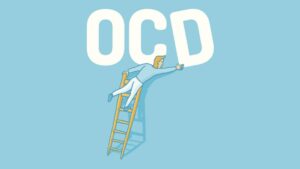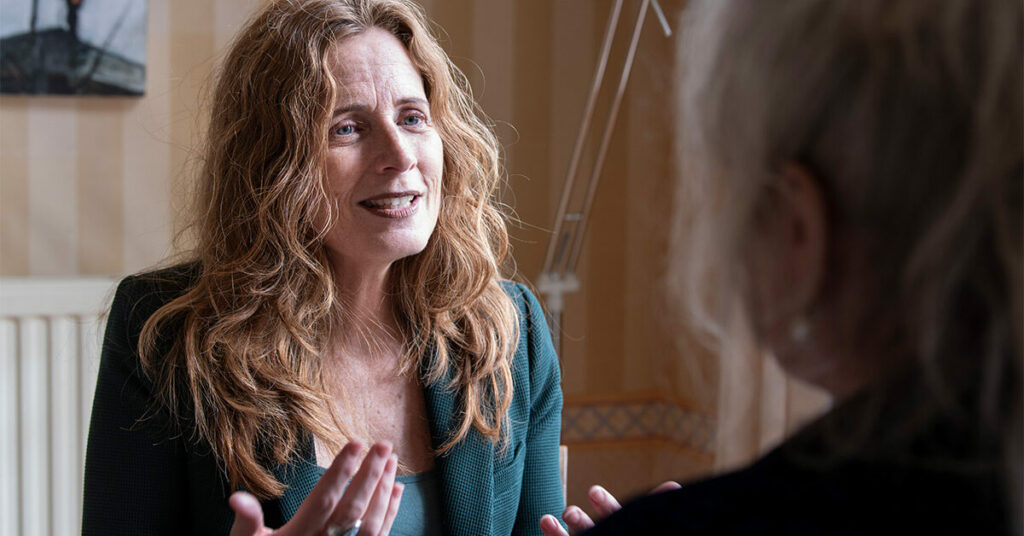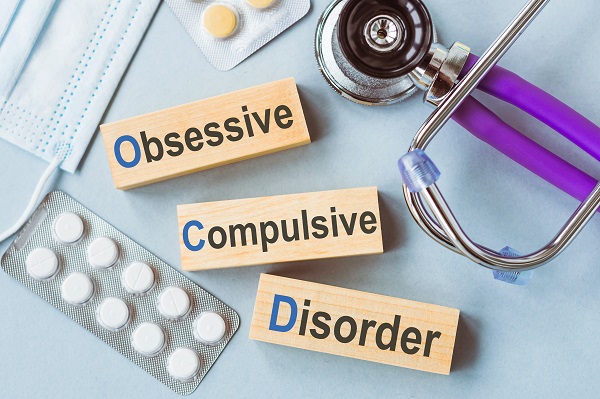If you are one of the millions of people who suffer from OCD, then you know how debilitating it can be. The good news is that there is help available, and you don’t have to suffer in silence. In this comprehensive guide, we will discuss all of the different OCD treatment options available. We will also provide tips on how to find the right treatment provider and how to pay for treatment. So if you are ready to get started on your road to recovery, keep reading.
Contents
What Is OCD?
 OCD is a mental health disorder that affects people of all ages. It is characterized by persistent, intrusive thoughts (obsessions) and/or repetitive behaviors (compulsions). People with OCD often have difficulty functioning in their daily lives due to the time-consuming nature of their thoughts and behaviors.
OCD is a mental health disorder that affects people of all ages. It is characterized by persistent, intrusive thoughts (obsessions) and/or repetitive behaviors (compulsions). People with OCD often have difficulty functioning in their daily lives due to the time-consuming nature of their thoughts and behaviors.
OCD can be a debilitating condition, but there is hope. With proper treatment, many people with OCD can live happy and productive lives.
The exact cause of OCD is unknown, but it is thought to be a combination of genetic and environmental factors. Some research suggests that OCD may be caused by abnormalities in certain brain regions or neurotransmitters. However, more research is needed to confirm this theory. There may be many reasons why someone develops OCD. Some people may be more prone to developing OCD due to their family history or personal experiences. Others may develop OCD after experiencing a traumatic event.
If you think you might have OCD, it is important to seek professional help. A mental health professional can help you determine if your symptoms are truly indicative of OCD. They can also provide you with the resources and support you need to manage your condition.
What Is OCD Treatment?
 Treating OCD is not a one size fits all process, as each individual’s experience with the condition is unique. However, some general principles apply to most people with OCD. The first step in treatment is typically education about what OCD is and how it works. This helps individuals understand their condition and develop more realistic expectations for treatment.
Treating OCD is not a one size fits all process, as each individual’s experience with the condition is unique. However, some general principles apply to most people with OCD. The first step in treatment is typically education about what OCD is and how it works. This helps individuals understand their condition and develop more realistic expectations for treatment.
The next step is usually developing a specific plan to address the person’s individual needs. This plan may involve different types of therapy, medication, or other interventions. The goal of this step is to help the person reduce their anxiety and learn new skills to manage their OCD symptoms.
Treatment for OCD often takes time and patience, but it can be very effective in helping people live happier, more productive lives. If you or someone you know is struggling with OCD, there are many resources available to help. Sometimes there may be also many different doctors who can help with OCD.
The most important thing to remember is that you are not alone and there is hope for recovery. With the right treatment, people with OCD can learn to manage their symptoms and live full, meaningful lives. Sometimes there can also be many different treatments for OCD.
Different Types of OCD Treatment

There are many different types of OCD treatment available, and the most effective approach depends on the individual. Some people may find that a combination of treatments is best, while others may only need one type of treatment. The most common types of OCD treatment are:
Medications
 Medications are one of the most common types of OCD treatment. Many different medications can be effective in treating OCD, and a doctor can work with you to find the best medication for your individual needs. Medications are also often used in combination with other types of treatment, such as therapy.
Medications are one of the most common types of OCD treatment. Many different medications can be effective in treating OCD, and a doctor can work with you to find the best medication for your individual needs. Medications are also often used in combination with other types of treatment, such as therapy.
These medications are such as:
- Antidepressants: Anti-depressants are the most common type of medication used to treat OCD. These medications can help reduce anxiety and improve mood.
- Serotonin reuptake inhibitors (SSRIs): SSRIs are a type of anti-depressant that is specifically designed to treat OCD. These medications work by increasing levels of serotonin in the brain, which can help reduce OCD symptoms.
- Tricyclic anti-depressants (TCAs): TCAs are another type of anti-depressant that can be effective in treating OCD. These medications work by changing the levels of certain chemicals in the brain, which can help relieve OCD symptoms.
- Monoamine oxidase inhibitors (MAOIs): MAOIs are another type of anti-depressant that can be used to treat OCD. These medications work by preventing the breakdown of certain chemicals in the brain, which can help reduce OCD symptoms.
Some medications are very different from each other and a doctor will work with you to find the best medication for your individual needs. Medications are also often used in combination with other types of treatment, such as therapy.
Therapy
Therapy is another common type of OCD treatment. Many different types of therapy can be effective in treating OCD, and a therapist can work with you to find the best approach for your individual needs. Therapy is often used in combination with other treatments, such as medication.
Cognitive-behavioral therapy (CBT)
CBT is a type of therapy that focuses on changing the thoughts and behaviors that contribute to OCD symptoms. CBT can help people learn new skills to manage their OCD symptoms and reduce their anxiety. In CBT, people also learn to challenge and change the thoughts that contribute to their OCD. CBT also makes it a goal to expose people to their feared objects or situations in a safe and controlled way. In CBT, people work with a therapist to gradually face their fears and learn new coping skills.
Exposure and response prevention therapy (ERP)
ERP is a type of CBT that specifically focuses on exposure to the feared objects or situations that trigger OCD symptoms. In ERP, people work with a therapist to gradually face their fears and learn new coping skills. This type of therapy can be very effective in treating OCD. ERP is also often used in combination with medication. Sometimes, people may need to be hospitalized for ERP if their OCD is severe. This therapy works by helping people face their fears and learn new skills to manage their anxiety.
Family-based therapy (FBT)
FBT is a type of therapy that focuses on helping the family members of people with OCD. FBT can help families learn new skills to support their loved ones with OCD. This type of therapy can also help families understand OCD and how it affects their loved ones. FBT is often used in combination with other types of treatment, such as medication and CBT. FBT works by helping families learn new skills to support their loved ones with OCD. Sometimes there may be also many different types of therapy that can be effective in treating OCD, and a therapist can work with you to find the best approach for your individual needs. Therapy is often used in combination with other treatments, such as medication.
Acceptance and commitment therapy (ACT)
ACT is a type of therapy that focuses on helping people accept their thoughts and feelings. ACT can help people learn to cope with their OCD symptoms more healthily. This type of therapy is often used in combination with other types of treatment, such as medication and CBT. ACT works by helping people accept their thoughts and feelings. In this therapy, people learn to manage their OCD symptoms more healthily. Sometimes, people may need to be hospitalized for ACT if their OCD is severe.
Dialectical behavior therapy (DBT)
DBT is a type of therapy that focuses on helping people manage their emotions. DBT can help people learn new skills to cope with their OCD symptoms. This type of therapy is often used in combination with other types of treatment, such as medication and CBT. DBT works by helping people manage their emotions. In this therapy, people learn new skills to cope with their OCD symptoms. Sometimes, people may need to be hospitalized for DBT if their OCD is severe.
Medication-assisted therapy (MAT)
MAT is a type of therapy that uses medication to help people recover from addiction. MAT can be used to treat OCD when someone also has an addiction to drugs or alcohol. This type of therapy is often used in combination with other types of treatment, such as CBT and DBT. MAT works by using medication to help people recover from addiction. In this therapy, people learn new skills to cope with their OCD symptoms and their addiction.
Hospitalization

Sometimes, people with OCD may need to be hospitalized for treatment. This is usually the case when someone has a very severe case of OCD that has not responded to other forms of treatment. Hospitalization can also be necessary if someone is a danger to themselves or others. In the hospital, people with OCD will receive intensive treatment from a team of mental health professionals. Treatment often includes medication, therapy, and exposure therapy. People who are hospitalized for OCD usually stay in the hospital for a while and then transition to outpatient care.
Outpatient care
Outpatient care is another option for people with OCD. In outpatient care, people receive treatment from a mental health professional, but they do not stay in the hospital. Outpatient care can be helpful for people with OCD who are not ready to transition to living without treatment. Treatment in an outpatient setting often includes medication, therapy, and exposure therapy. This outpatient care can be done in a partial hospitalization program or an intensive outpatient program.
Support Groups
Support groups are a great way to get OCD treatment. There are many groups available, both in person and online. This can be a great resource for people who want to learn more about OCD and treatment options. There are also support groups specifically for people with OCD. These groups can provide valuable information and support from others who understand what you’re going through. If you’re interested in finding a support group, your doctor or therapist may be able to help you find one in your area. You can also search online for “OCD support group” to find options near you.
Self-Care
Self-care is an important part of treatment for OCD. There are things that you can do to support your mental health and well-being. Some self-care tips for people with OCD include:
Get enough sleep
Sleep is important for physical and mental health. People with OCD may have trouble sleeping, so it is important to get enough sleep. There are things that you can do to improve your sleep, such as:
- establish a regular sleep schedule
- avoid caffeine and alcohol before bed
- create a relaxing bedtime routine
Eat a healthy diet
Eating a healthy diet is important for physical and mental health. People with OCD may have trouble eating, so it is important to eat a healthy diet. There are things that you can do to improve your diet, such as:
- eat three meals each day
- eat foods that are high in fiber and protein
- drink plenty of water
Exercise regularly
Exercise is important for physical and mental health. People with OCD may have trouble exercising, so it is important to exercise regularly. There are things that you can do to make exercise more manageable, such as:
- start with small goals
- find an activity that you enjoy
- exercise with a friend or family member
Take breaks
It is important to take breaks throughout the day. People with OCD may have trouble taking breaks, so it is important to find ways to relax and recharge. There are things that you can do to take better care of yourself, such as:
- take a few minutes each day to yourself
- turn off your electronics an hour before bedtime
- spend time outside in nature
Talk to someone you trust
Talking to someone you trust can be helpful for people with OCD. This person can be a friend, family member, therapist, or doctor. Talking to someone can help you:
- understand your thoughts and feelings
- manage stress and anxiety
- stay on track with treatment
Avoid Alcohol and drugs
Alcohol and drugs can make OCD symptoms worse. People with OCD should avoid alcohol and drugs. If you are struggling with addiction, treatment can help you recover. Addiction treatment often includes:
- medication
- therapy
- detoxification
Try To Be Mindful
Mindfulness is a way of paying attention to the present moment. People with OCD can benefit from mindfulness. There are things that you can do to be more mindful, such as:
- focus on your breath
- notice your thoughts and feelings
- be in the moment
Try Relaxation Techniques
One should always try to relax when they are feeling overwhelmed. relaxation techniques can be helpful for people with OCD. There are things that you can do to relax, such as:
- take slow, deep breaths
- progressive muscle relaxation
- visualization
Yoga or meditation can be helpful for people with OCD. There are many types of meditation or yoga activities that can also be helpful. Some people find it helpful to:
- sit in silence for a few minutes each day
- focus on a mantra or word
- practice yoga poses
Seek Professional Help If Needed
If you are struggling to manage your OCD, professional help may be needed. Many types of professionals can help, such as:
- therapist
- psychiatrist
- counselors
- therapists
Each person’s experience with OCD is unique, so it is important to find a professional who understands your needs. Treatment for OCD often includes medication, therapy, and exposure therapy. You can find a mental health professional through us.
Tips To Keep In Mind While Taking OCD Treatment

Getting OCD treatment always follows a professional evaluation to ensure that the person has OCD and not another anxiety disorder. Here are some tips to keep in mind while taking OCD treatment:
Try To Be Patient
Patience is very important while taking OCD treatment. The process of exposure therapy may be long and difficult, but it is important to trust the process and be patient. There can also be many setbacks while taking treatment, so it is important to be patient and keep going.
Be Consistent
It is important to be consistent with treatment. This means attending all therapy sessions and doing exposure homework. It can be difficult to stick with treatment, but it is important to persevere. Consistency also means taking medication as prescribed.
Find A Support System
A support system can be very helpful while taking OCD treatment. This can be a group of friends or family members who provide emotional support. Many online communities can provide support and understanding.
OCD Treatment Is Not A Quick Fix
OCD treatment takes time and effort, but it is possible to make progress. Remember that there are setbacks and relapses along the way. The most important thing is to keep working at it. If you need help, don’t hesitate to seek professional help.
Be Willing To Challenge Your Thoughts
One of the most important things you can do for your OCD is to challenge your thoughts. If you are having a negative thought about something, try to come up with three positive things about that situation.
Remember That You Are Not Alone
It is important to remember that you are not alone in this. Many people understand what you are going through and can offer support. Seek out a support group or community to help you through this journey.
We hope that this guide was helpful for you in understanding OCD and getting the treatment you need. Remember, treatment takes time and effort, but it is possible to make progress. If you need help, don’t hesitate to seek professional help.
Conclusion
OCD treatment is not one size fits all. Many different types of therapy and medication can be effective for treating OCD. The most important thing is to find a treatment plan that works for you. If you are struggling with OCD, reach out to a mental health professional to get started on your journey to recovery.
Sometimes OCD treatment can help us to see our obsessions and compulsions for what they are: senseless and irrational. This can help us to start to let them go. Treatment can also help us to develop tools and strategies for dealing with our OCD symptoms. Ultimately, treatment is about helping us to live happier, more productive lives.
If you or someone you know is struggling with OCD, please reach out for help. There are many resources available, including mental health professionals, support groups, and online communities. Remember, you are not alone in this fight. Your mental health — Your psychological, emotional, and social well-being — has an impact on every aspect of your life.
Hope this article was of help to you! If you are suffering from OCD, you may seek help from Therapy Mantra. We have a team of highly trained and experienced therapists who can provide you with the tools and skills necessary for overcoming OCD. Contact us today to schedule an online therapy or download our free OCD treatment app on Android or iOS for more information.


